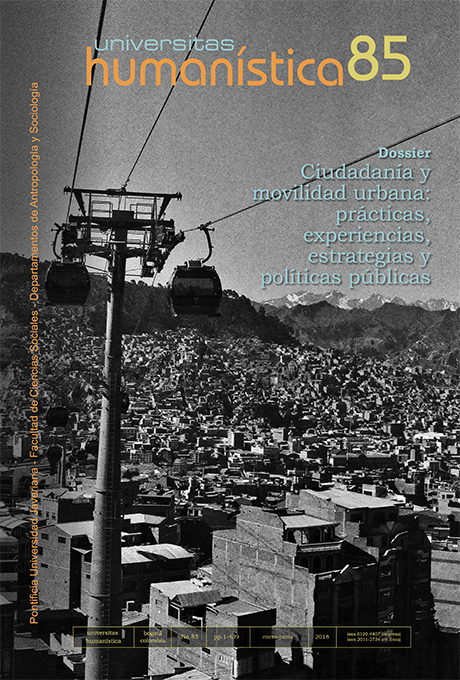Abstract
The article presents the preliminary results of an anthropological research carried out in two neighborhoods of the metropolitan region of Belo Horizonte. There, displacements are analytically described as movement practices located in the social space, which act against the effects of gender and residence in the journeys of subjects in the cities. The neighborhoods of Jardim Canada and Água Limpa are located along highway BR-040, where there are housing and utilities for middle class and lower income groups. In this heterogeneous context of urban expansion, the focus is on the mobility of women and their families, who migrated from other places and now make routine trips to fulfill work and personal service responsibilities. The mobility practices are thought in relation to the metropolitan context and the changes in valuation associated with the movement, leading to a search of a better life and the city that could be, intertwining the trajectories of individuals to the space-time of the urban borders.

This journal provides immediate open access to its content on the principle that making research freely available to the public, encourages greater global exchange of knowledge.
The journal Universitas Humanística is registered under a Creative Commons Attribution 4.0 International Public License. Thus, this work may be reproduced, distributed, and publicly shared in digital format, as long as the names of the authors and Pontificia Universidad Javeriana are acknowledged. Others are allowed to quote, adapt, transform, auto-archive, republish, and create based on this material, for any purpose (even commercial ones), provided the authorship is duly acknowledged, a link to the original work is provided, and it is specified if changes have been made. Pontificia Universidad Javeriana does not hold the rights of published works and the authors are solely responsible for the contents of their works; they keep the moral, intellectual, privacy, and publicity rights.
Approving the intervention of the work (review, copy-editing, translation, layout) and the following outreach, are granted through an use license and not through an assignment of rights. This means the journal and Pontificia Universidad Javeriana cannot be held responsible for any ethical malpractice by the authors. As a consequence of the protection granted by the use license, the journal is not required to publish recantations or modify information already published, unless the errata stems from the editorial management process. Publishing contents in this journal does not generate royalties for contributors.


